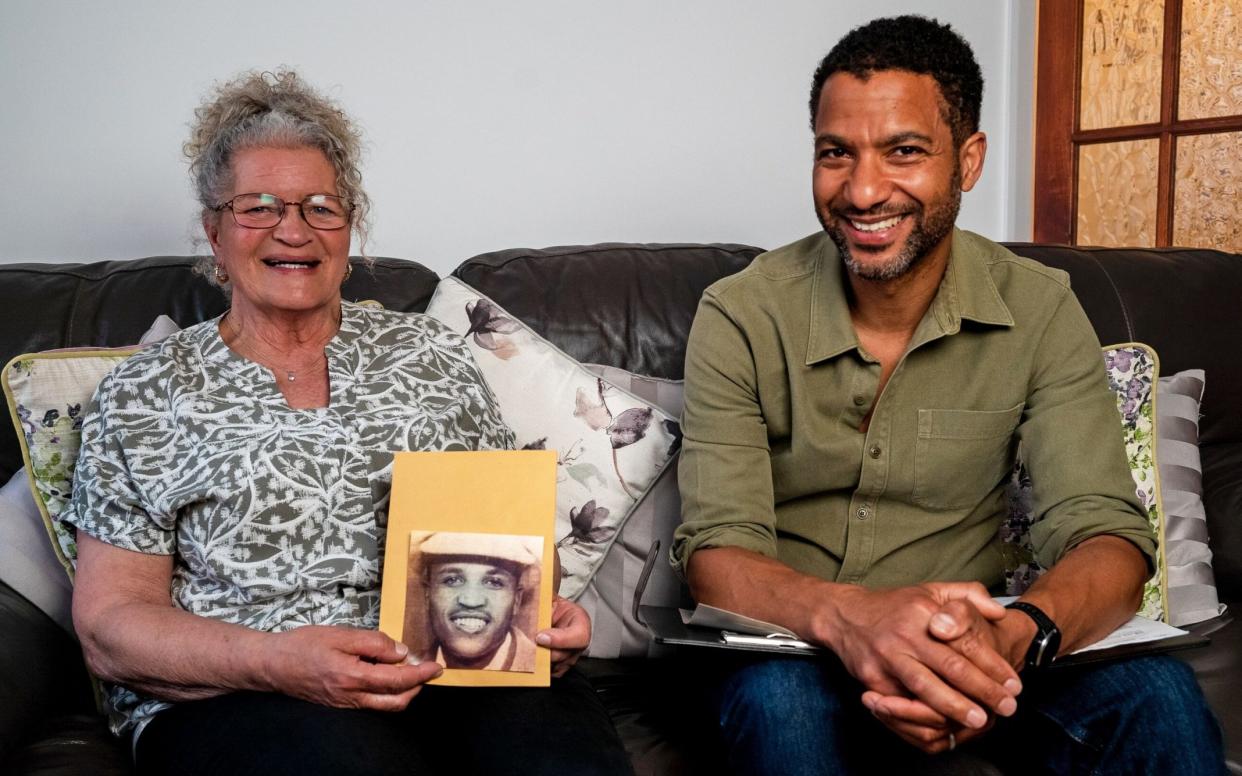Britain’s Secret War Babies, review: a fascinating history – but why the blatant tear-jearking?

With around 2,000 children born between 1942 and 1946 to local women and visiting African-American GIs, Britain’s black population shot up by 30 per cent. Yet most of those children never knew their fathers, and so grew up with a large piece of their identity missing.
That’s the trauma which journalist Sean Fletcher set out to heal in Britain’s Secret War Babies, Channel 4’s affecting but slightly odd hybrid programme. It mixed the personalised research of Who Do You Think You Are? (but for people we don’t know) with the deliberate tear-jerking of Long Lost Family, plus a mild dose of historical enquiry.
Septuagenarian Mary, raised in South Wales, had spent 20 years searching for her dad. As a child, she felt different and was taunted with the N-word; she used to scrub her face with bleach. When Fletcher finally tracked down her late father’s draft card and photograph, it was a powerful moment. “In’t he lovely?” gasped Mary. “I’ve got his nose.”
Weymouth-based John had an even tougher time. His mother had an affair with a GI billeted at her guesthouse. When her husband returned from the war, he violently beat his mixed-race stepson. Fletcher found John’s birth father too, and then introduced him and Mary to their living relatives. Pieces of the puzzle snapped into place: John, who boxed as a boy, found out his dad had been a boxing champion.
It was all very heart-warming, but Fletcher wouldn’t let the stories unfold naturally. He kept delaying big reveals, as though reading out the winner on Love Island, and nudging Mary and John into following scripted emotional beats. He also inserted himself into the narrative, as a mixed-race British man, but without offering much insight. More disturbing were top-secret Home Office documents from the 1940s expressing fears about a deluge of “semi-coloured” children. A memo from the Secretary of State for War essentially suggested that Brits should abide by the US’s segregation policy – “pandering”, as Fletcher rightly put it.
Yet we know from incidents like the Battle of Bamber Bridge, which loosely inspired the recent film The Railway Children Return, that many British locals defied US orders for the town to segregate the black troops stationed there. It was a shame that there wasn’t room to explore that and similar incidents further, or to include analysis from experts on this seismic change. It’s an interesting enough lost chapter of history to hook us with the facts alone, rather than relying quite so heavily on personal tales and blatant emotional manipulation.

